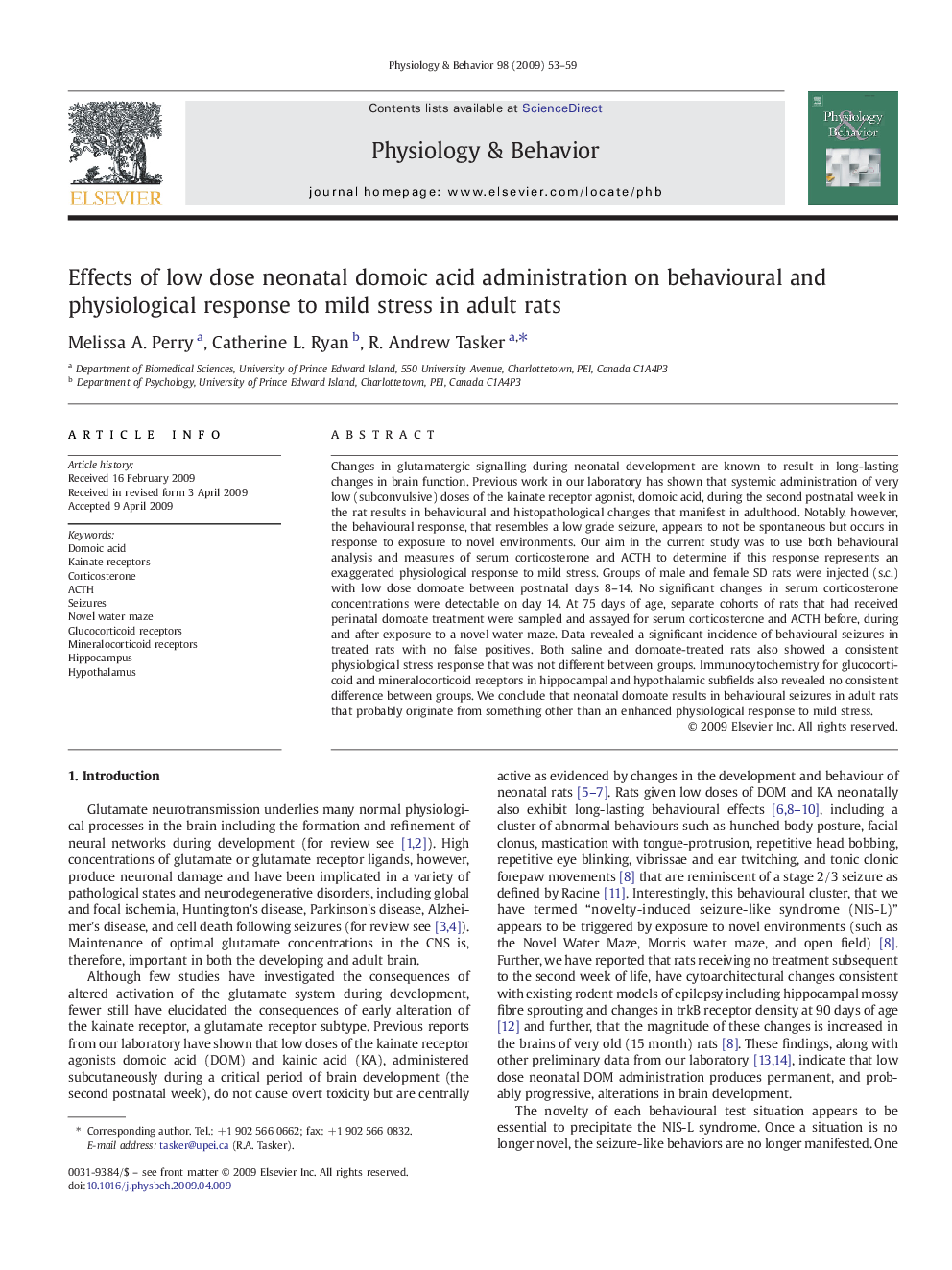| Article ID | Journal | Published Year | Pages | File Type |
|---|---|---|---|---|
| 2845449 | Physiology & Behavior | 2009 | 7 Pages |
Changes in glutamatergic signalling during neonatal development are known to result in long-lasting changes in brain function. Previous work in our laboratory has shown that systemic administration of very low (subconvulsive) doses of the kainate receptor agonist, domoic acid, during the second postnatal week in the rat results in behavioural and histopathological changes that manifest in adulthood. Notably, however, the behavioural response, that resembles a low grade seizure, appears to not be spontaneous but occurs in response to exposure to novel environments. Our aim in the current study was to use both behavioural analysis and measures of serum corticosterone and ACTH to determine if this response represents an exaggerated physiological response to mild stress. Groups of male and female SD rats were injected (s.c.) with low dose domoate between postnatal days 8–14. No significant changes in serum corticosterone concentrations were detectable on day 14. At 75 days of age, separate cohorts of rats that had received perinatal domoate treatment were sampled and assayed for serum corticosterone and ACTH before, during and after exposure to a novel water maze. Data revealed a significant incidence of behavioural seizures in treated rats with no false positives. Both saline and domoate-treated rats also showed a consistent physiological stress response that was not different between groups. Immunocytochemistry for glucocorticoid and mineralocorticoid receptors in hippocampal and hypothalamic subfields also revealed no consistent difference between groups. We conclude that neonatal domoate results in behavioural seizures in adult rats that probably originate from something other than an enhanced physiological response to mild stress.
